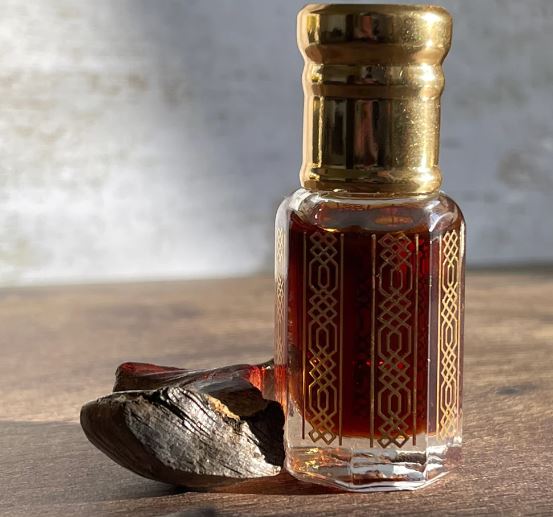When it comes to perfumery, two terms that frequently pique people's interest are ouds vs attar. Both of these fragrant liquids have a long history and a compelling scent, yet they are different in their way. Let’s unfold the fascinating world of ouds and attars, their origins, qualities, and the subtle differences that distinguish them.
Oudh – A Luxurious Fragrance
Oudh is a resinous heartwood found in the Aquilaria and Gyrinops trees. It is also known as agarwood or aloeswood. As a natural defensive mechanism, the heartwood becomes infected with a specific type of mould, resulting in the creation of a fragrant resin. This resin is what makes oud so valuable and desirable.
Attar – Nature's Essence
Attar is a fragrant oil generated from natural sources, such as flowers, herbs, and spices. It's also known as natural perfume or plant perfume. The term ‘attar’ comes from the Persian word ‘ittar,’ which means ‘scent.’ The synthesis of ittar is a centuries-old craft that has been passed down through generations.
Ouds vs Attar: Key Differences
The basic concept of ouds vs attar is described above for your convenience. Let’s see how these two amazing sources of scents differ from each other.
Agarwood scent is collected from the heartwood of certain trees. In contrast, ittar is extracted from natural ingredients, such as flowers and plants.
Oud has a powerful, woody, and smokey perfume with deep undertones, whilst attar has a wide spectrum of fragrances depending on the source material, ranging from floral to herbal and spicy.
Oud is extracted largely using steam or water distillation, whilst ittar is created through hydro-distillation.
Oudh is noted for its complex and deep scent, but attar's aroma may be complex as well. However, it varies according to the source material.
Oud is frequently used as a solo scent or as a foundation note in fragrances. Attar is a natural scent that may be found in a variety of cosmetics products.
Oudh has a long history of cultural and religious significance in the Middle East and Southeast Asia, whilst attar has been revered in India and Persia for ages.
Oudh or Ittar: Which One Should You Pick?
Personal preferences and the occasion determine the decision between oudh and attar. Here are some things to think about to help you decide:
Because of its exquisite and exotic aroma, oudh is frequently linked with formal and special occasions. Attar, with its many fragrances, is appropriate for everyday usage and may be selected depending on your mood.
Suppose you have sensitive skin or want a more natural option. In that case, Attar may be a better choice because it is free of synthetic ingredients present in commercial fragrances.
If you like fragrances that develop over time, Oud's intricacy may appeal to you. If you want a certain floral or herbal aroma, Attar has a variety of alternatives.
Consider your cultural background as well as the cultural significance of ouds vs attar in your location. Both can help you connect with your ancestors.
Conclusion
Ouds vs attar is a unique chapter of a large olfactory book. Each provides a distinct experience, and the one you choose relies on your particular tastes, the occasion, and the tale you want to tell via fragrance. Oud has a particular mysticism due to its long history and sumptuous aroma. However, Attar, drawn from nature's beauty, gives a diversified and personal olfactory trip.
Whatever you like, both ouds vs attar can captivate the senses and elicit emotions, making them indispensable in the world of perfumery. So, go ahead and discover New Arabia for these beautiful gems, and allow your senses to take you on this delicious journey.



